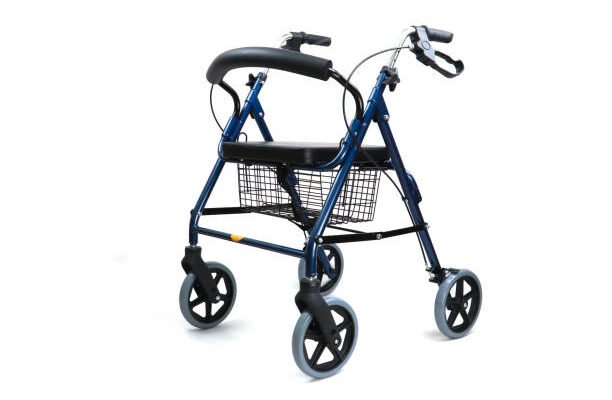A rollator, often referred to as a rolling walker, is a mobility aid designed to provide stability and support for individuals who need assistance while walking. Unlike traditional walkers, rollators are equipped with wheels, a seat, and additional features that enhance usability and comfort. They are particularly beneficial for seniors, individuals recovering from injuries, or those with chronic mobility issues. This article explores the key features, benefits, and factors to consider when choosing a rollator.
Key Features of a Rollator
Rollators come in various designs, but they generally share these common features:
-
Wheels
Rollators are equipped with three or four wheels, making them easier to maneuver compared to traditional walkers. Four-wheel models are more stable, while three-wheel models are lightweight and better suited for tight spaces. -
Seat and Backrest
Many rollators include a built-in seat and backrest, allowing users to take breaks during walks. This feature is particularly useful for individuals who tire easily or have conditions like arthritis. -
Hand Brakes
Hand-operated brakes provide control and safety, enabling users to stop the rollator when needed. This is especially important on slopes or uneven surfaces. -
Storage Options
Most rollators include a basket, pouch, or tray for carrying personal items, groceries, or medical equipment. -
Adjustable Height
Rollators are designed to accommodate users of various heights. Adjustable handles ensure proper posture and comfort.
Benefits of Using a Rollator
-
Improved Mobility
Rollators enhance independence by enabling users to walk longer distances without assistance. The wheels and ergonomic design reduce the physical effort required to move. -
Enhanced Stability
Unlike canes or basic walkers, rollators provide better balance and support, reducing the risk of falls. -
Convenience
The inclusion of storage compartments and a seat makes rollators versatile tools for daily activities, such as shopping or attending social events. -
Compact and Portable
Many rollators are foldable, making them easy to transport and store. This feature is particularly beneficial for users who travel frequently.
Choosing the Right Rollator
When selecting a rollator, consider the following factors:
-
Weight Capacity
Rollators are available in standard and heavy-duty models. Ensure the model you choose can support your weight comfortably. -
Wheel Size
Larger wheels are better for outdoor use, as they navigate uneven terrain more effectively. Smaller wheels are ideal for indoor environments. -
Size and Adjustability
Opt for a rollator that matches your height and body frame. Adjustable handles and a comfortable seat height are crucial for proper ergonomics. -
Brake System
Test the brakes to ensure they are easy to use and responsive. -
Additional Features
Depending on your needs, you may want a rollator with extra features like padded seats, removable baskets, or built-in lights for nighttime use.
Maintaining Your Rollator
To ensure longevity and optimal performance, regular maintenance is essential. Check the brakes, tighten any loose screws, and clean the wheels to prevent debris buildup. Inspect the frame for signs of wear and tear, especially if you use the rollator frequently outdoors.
Conclusion
A rollator is a valuable investment for anyone seeking improved mobility and independence. By choosing a model that suits your lifestyle and physical needs, you can enjoy greater freedom and confidence in your daily activities. With proper care and maintenance, a rollator can provide years of reliable support and convenience.
